What Is an AI Agency and How Do You Build One in 2026?


As an agency, you’re likely facing a familiar problem: finding an AI solution that actually fits both your clients’ expectations and your internal workflows. Most tools promise simplicity but end up adding more complexity.
What you need is an AI solution that’s secure, customizable, and scalable built to handle real business tasks, not just surface-level automation. That’s where AI agents come in.
AI agents are advanced systems designed to automate complex workflows with minimal input. From onboarding to support to internal operations, they help your team deliver faster, smarter results without switching between multiple platforms.
Better yet, white-labeling AI agents gives your agency a way to offer them under your own brand. You control the experience, own the relationship, and create a new service offering that’s both high-value and recurring.
Instead of stitching together tools that don’t scale, you deliver a full, branded AI solution tailored to your clients and aligned with your business.

AI agency is a service provider that helps businesses integrate, manage, and scale artificial intelligence solutions without needing an in-house technical team.
AI agencies focus on building systems that automate tasks, improve customer experience, and increase efficiency, unlike traditional agencies that specialize in design, ads, or content.
The core offering isn’t just software it’s outcomes.
AI agencies deploy tools like AI agents, AI chatbots, and custom automation workflows trained on client data. These solutions handle real business tasks: customer support, lead qualification, internal operations, reporting, and more.
An AI agency acts as both a solution provider and a long-term partner helping their clients adopt AI in ways that actually move the business forward.
And with white-labeled AI agents, agencies can offer these services under their own brand turning AI from a capability into a product.
AI agencies generally fall into two categories, depending on how they build and deliver solutions to clients.
These agencies use platforms like YourGPT to build and deploy AI solutions without writing complex code. They rely on visual interfaces and pre-built components to move fast and reduce development time.
Where they stand out:
This model works well for agencies looking to launch AI services quickly and offer fully branded solutions without managing infrastructure.
These agencies build solutions from scratch using machine learning libraries, APIs, and backend systems. They’re focused on solving complex problems that require custom architecture.
Where they fit best:
Some agencies stick to one model, while others combine both using no-code tools for quick wins and custom builds for high-complexity projects.

AI is now a must for agencies because clients expect it. They want faster service, better insights, and better solutions.
But most AI platforms don’t actually help agencies. Many agency owners try different tools, only to find they don’t integrate well, scale properly, or add real value.
Here are the biggest challenges agencies face with AI—and how to avoid them.
Most AI tools are built for enterprises or consumers—not agencies. That leads to:
Agencies need AI designed specifically for them, with white-labeling, deep integrations, and continuous updates.
Agencies don’t need generic (one for all) AI—they need AI that fits their clients’ workflows. Many tools force agencies into rigid templates, leading to:
A good AI platform should allow full control over branding, workflows, integrations, and logic. The tool should adapt to the agency’s business, not the other way around.
Many AI tools look promising but lack essentials:
AI should do more than just answer questions. It should drive real results like lead conversion, automation, and customer retention.
Most AI tools today will be outdated in a year. Without ongoing improvements, agencies get stuck with:
The right AI provider should release frequent updates, have a clear roadmap, and improve training data, automation, and security. If they can’t provide clear answers on future development, they aren’t the right choice.
Agencies handle sensitive client data, but many AI vendors:
Security should be a priority. AI providers must offer end-to-end encryption, data residency controls, and compliance with SOC 2, GDPR, and ISO standards.
AI should seamlessly connect with:
Without proper integration, agencies face manual data entry, missed automation opportunities, and frustrated clients. Deep API integrations should be a core feature, not an afterthought.
Some AI tools work well at small volumes but fail as demand grows. Common issues include:
Agencies need AI that scales without breaking performance or budgets.

Starting an AI agency in 2026 is a real opportunity not just hype. Businesses across every sector are looking for AI solutions to reduce costs, improve customer support, and automate repetitive work. The demand is high, but most companies don’t have the in-house expertise to build or manage AI tools on their own.
Focus on a specific market SaaS companies, crypto platforms, e-commerce brands, or service businesses. Specialising gives you a clear advantage and makes your offer easier to sell.
Build your services on a platform like YourGPT, which lets you launch AI agents without code and sell them under your own brand. You stay in control while we handle the backend.
Most agencies sell vague services. “Custom chatbot setup.” “AI automation.” Nobody wants that.
What people want is a clear, outcome-driven solution that solves a specific problem they already know they have.
That’s what a Grand Slam Offer does. Build your offer so well-aligned with their pain point that buying becomes obvious — and not buying feels like a missed opportunity.
That’s how agencies win — not by offering everything, but by solving one thing better than anyone else.
Use real content from your client: FAQs, support docs, product info. Upload it, test it, refine it.
You don’t need to be technical — you just need to know what the client’s customers are asking, and make sure the bot can answer it.
Once it’s trained, go live. Website, dashboard, support — your agent shows up wherever it’s needed.
It runs under your logo. Your name. Not someone else’s platform. You control the delivery, and your clients never see what’s behind the curtain.
Track impact — faster support, more leads, lower workload. Turn those results into case studies and use them to close your next clients.

Choosing an AI platform for your agency isn’t just about picking the most popular tool—it’s about finding one that fits your workflows, integrates smoothly, and actually improves efficiency. The wrong platform can slow you down, frustrate your team, and waste money. Here’s how to make the right choice.
Before comparing AI tools, be clear on what you actually need.
Your AI platform should solve real problems in your agency, not just be another tool you pay for.
Not all AI platforms are created equal. Some are built for specific industries, while others try to be one-size-fits-all (and often fall short). Look for:
If an AI tool doesn’t fit your industry’s workflow, you’ll spend more time trying to make it work than actually using it.
Your AI tool should fit easily into your current clients operations. Check for:
The more effort it takes to get the AI working, the less time it saves you.
Many AI tools sound great on paper but fail in execution because they lack flexibility. Avoid platforms that:
A good AI tool should adjust to how your agency operates—not the other way around.
AI tools have different pricing models, and many get expensive fast. Look beyond the base price and ask:
A tool that fits your budget today but can’t scale will hold your agency back later.
Before committing, put the AI to work.
The best AI platform for your agency is the one that saves time, improves results, and grows with your business. Don’t pick based on hype—pick based on real impact.
Businesses need AI solutions, but lack the expertise. Seize this opportunity with YourGPT’s white-label platform and start generating revenue without coding.
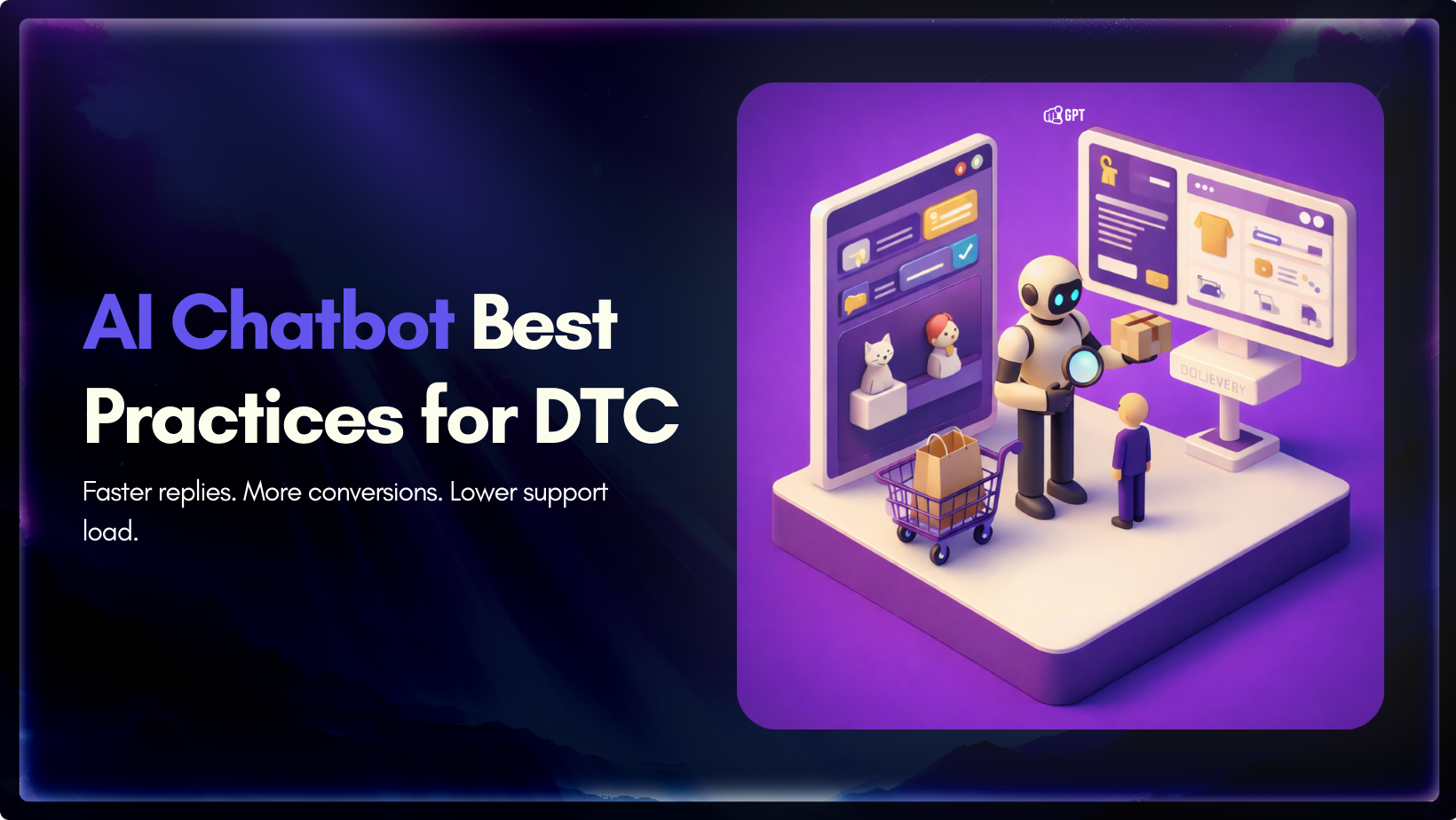
Nearly 70% of shoppers who add something to their cart leave without buying (glued). Some were never serious. But a lot of them had a question, needed a fast answer, and moved on when one did not come. That is the actual problem AI chatbots solve in DTC, when built correctly. A specific shopper, a […]

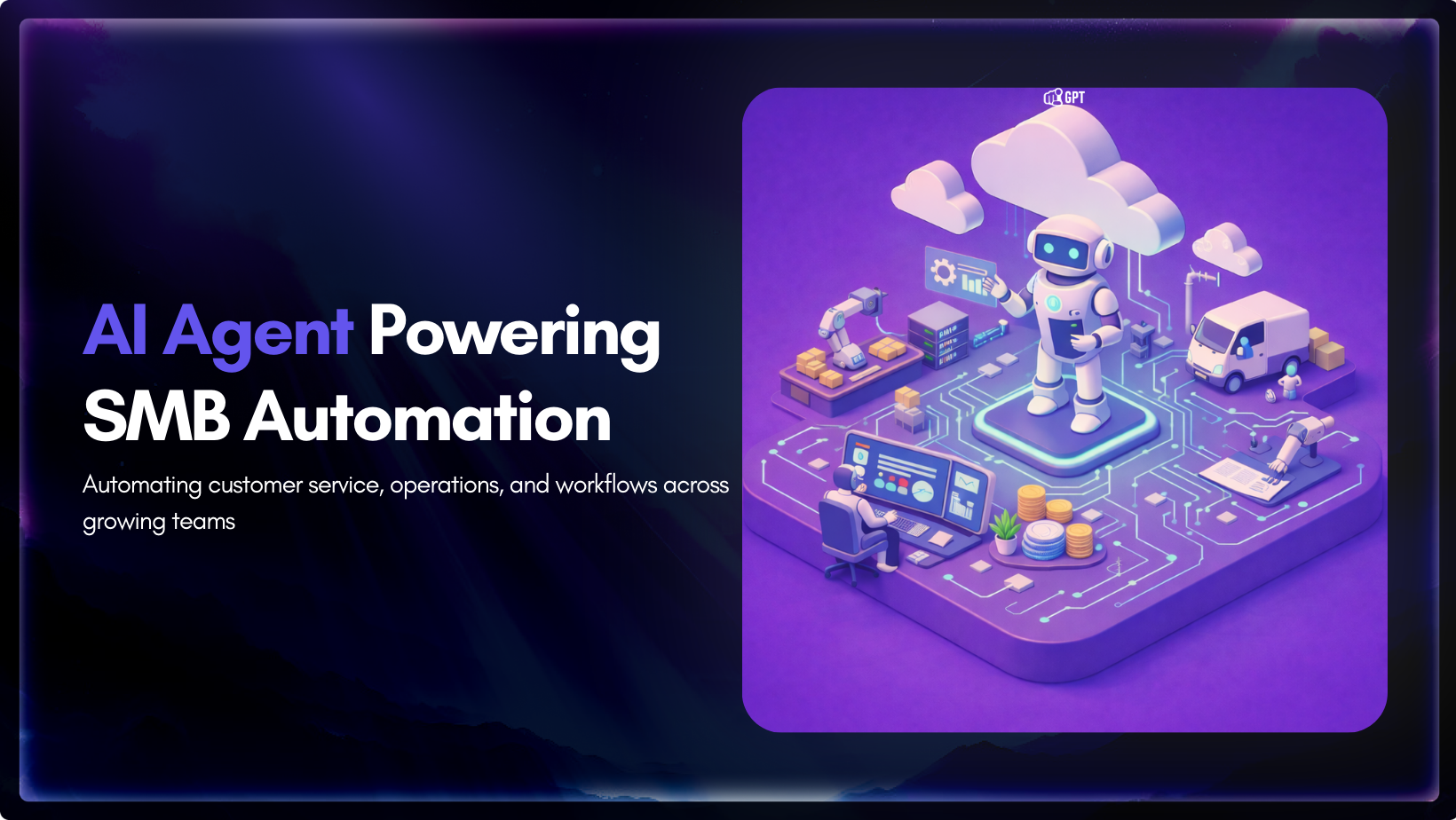
Small and medium businesses are facing a structural shift. Customers expect instant responses. Work happens across dozens of tools. Teams remain lean. Costs keep rising. Yet service quality is expected to match large enterprises. For years, businesses depended on chatbots, helpdesks, and manual workflows. These systems offered limited relief, handling basic questions and ticket routing […]

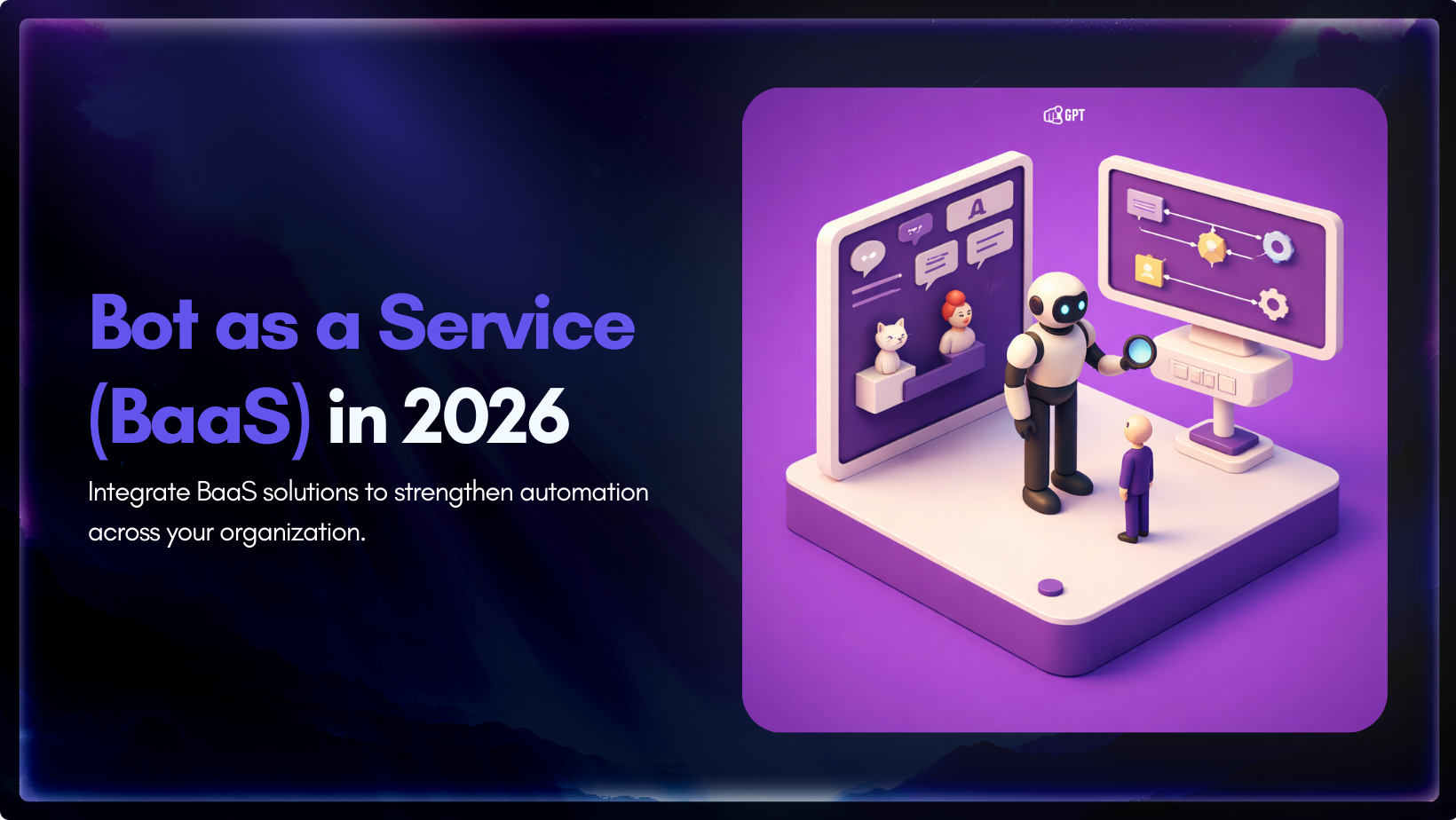
Automation defines how modern enterprises execute, respond, and grow. Customer conversations are handled by AI. Transactions move through automated workflows. Approvals route across departments without manual follow-ups. In high-performing organizations, intelligent systems are embedded directly into revenue operations, service delivery, finance, and internal support. Investment trends confirm this shift. The global conversational AI market surpassed […]

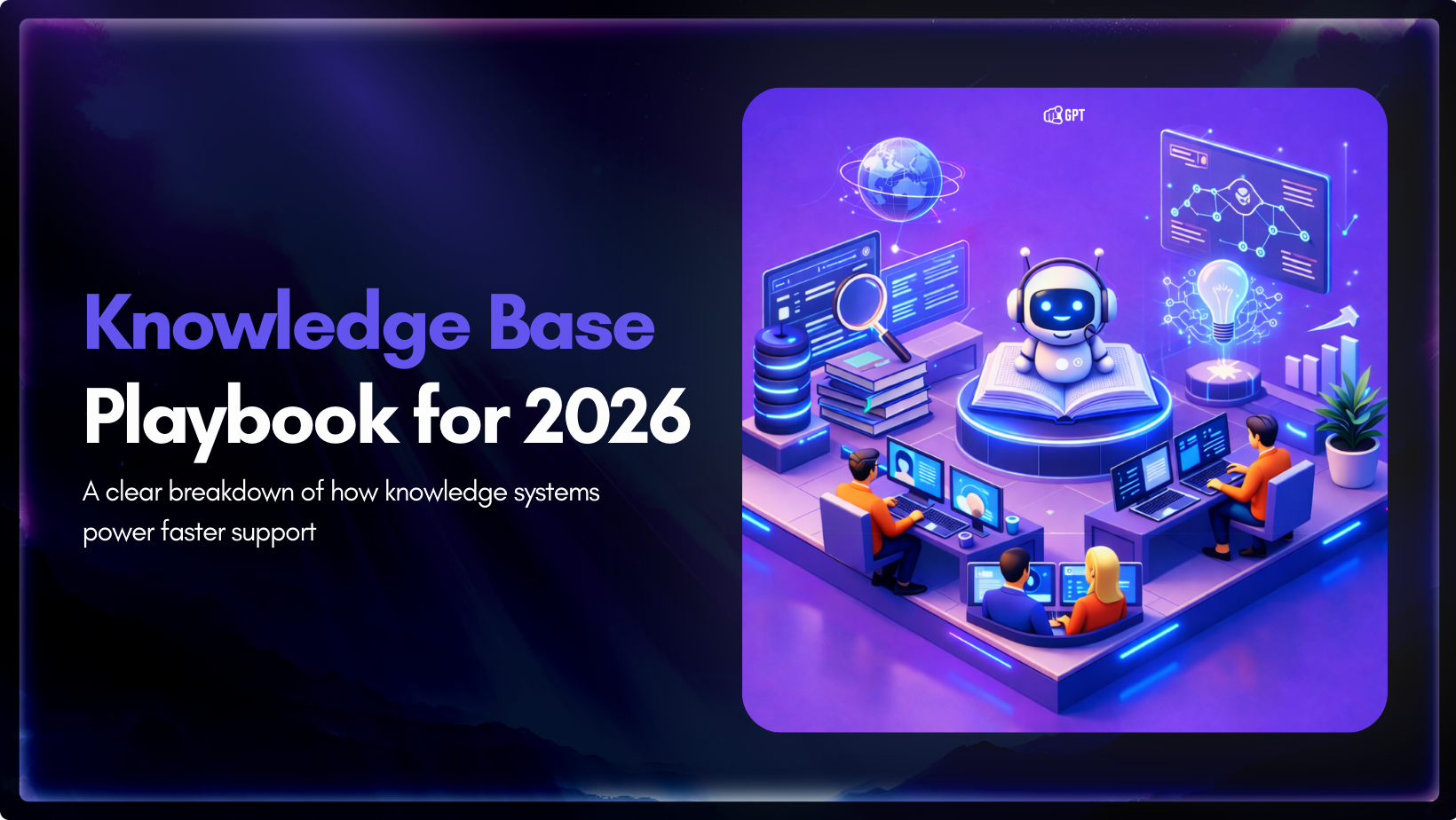
Access to clear, accurate information now sits at the center of customer experience and internal operations. People search first when setting up products, reviewing policies, or resolving issues, making structured knowledge essential for fast, consistent answers. A knowledge base organizes repeatable information such as guides, workflows, documentation, and policies into a searchable system that supports […]

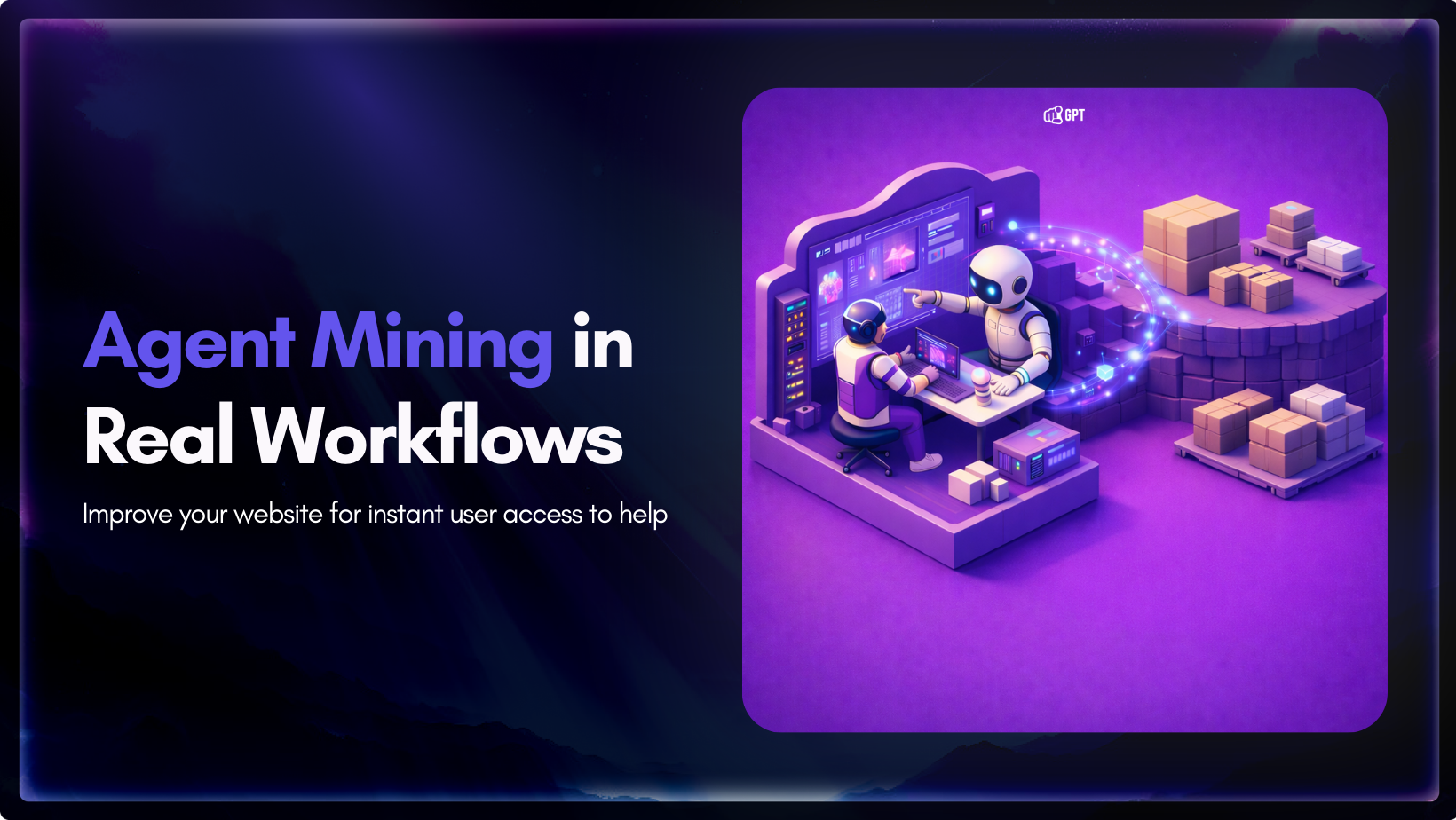
TL;DR Agent mining shifts AI from answering questions to executing real work across systems through controlled, repeatable workflows with verification. By automating repetitive operations with guardrails and observability, agents reduce friction, improve consistency, and let humans focus on decisions and edge cases. For a decade, AI was mostly framed as something that answers. It explains, […]

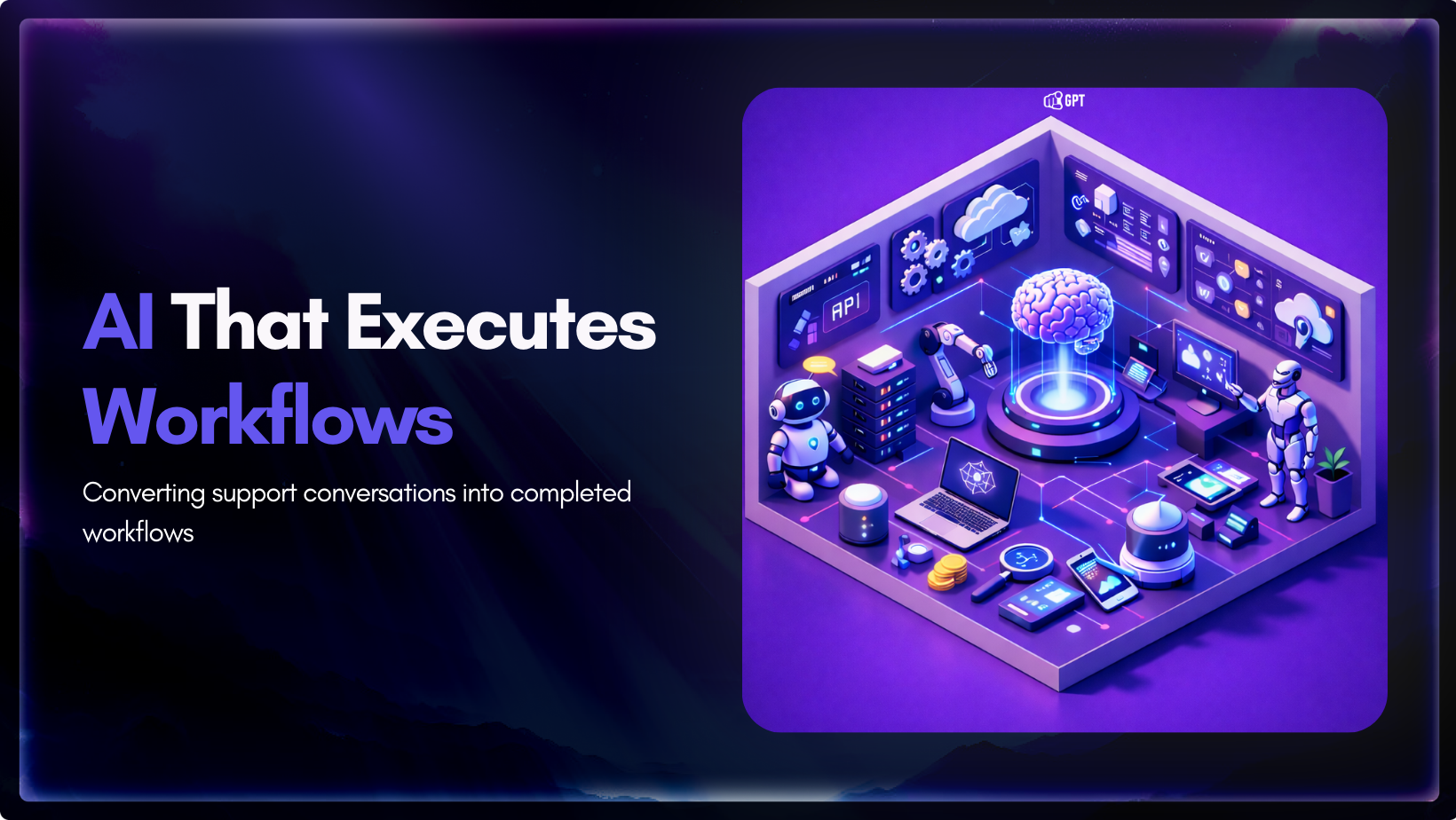
Say “AI” and most people still think ChatGPT. A chat interface where you type a question and get an answer back. Fast, helpful, sometimes impressive. Three years after ChatGPT went viral, surveys show that’s still how most people think about AI. For many, ChatGPT isn’t just an example of AI. It is AI. The entire […]
